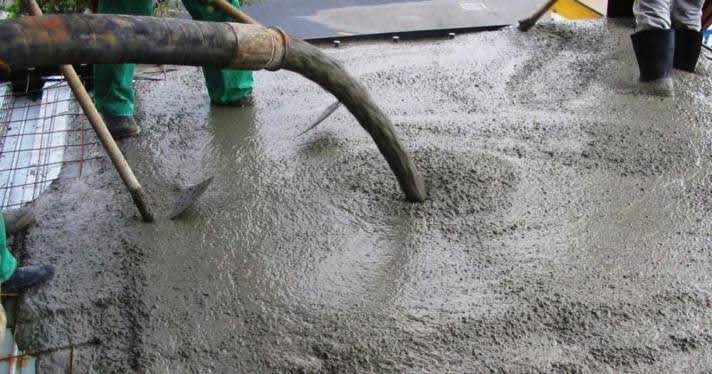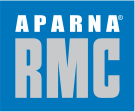Advantages of Self-Compacting Concrete SCC Concrete for Complex Structures

August 21, 2024
When it comes to constructing complex structures, ensuring strength, durability, and efficient placement of concrete is critical. Self-Compacting Concrete (SCC), also known as Self-Consolidating Concrete, is a highly advanced material that offers significant benefits in modern construction. It is designed to flow under its own weight, eliminating the need for mechanical vibration, and making it ideal for structures with intricate designs or dense reinforcement.
In this blog, we’ll explore the key advantages of self-compacting concrete (SCC) and how it transforms the construction of complex structures.
What is Self-Compacting Concrete (SCC)?
Self-compacting concrete (SCC) is a type of concrete that can flow easily into tight spaces and around reinforcement without the need for external compaction. Its unique properties come from the use of advanced admixtures that enhance its fluidity and maintain high strength once set. SSC is especially valuable for high-rise buildings, bridges, tunnels, and other complex architectural designs.
1. Enhanced Workability in Dense Reinforcement
One of the most significant advantages of self-compacting concrete (SCC) is its ability to flow smoothly through congested areas of reinforcement. In traditional concrete applications, mechanical vibration is needed to ensure that the concrete fills all voids. However, accessing every part for vibration in densely reinforced structures can be difficult.
Self-compacting concrete (SCC) flows easily into tight spaces, making it perfect for complex structures with dense steel reinforcement.
The concrete’s fluidity ensures full encapsulation of the reinforcing bars, which enhances durability and reduces the likelihood of voids and honeycombing.
2. Superior Surface Finish
When constructing intricate or detailed architectural structures, achieving a high-quality surface finish is essential. self-compacting concrete (SCC) is ideal for projects that require smooth surfaces or architectural concrete without blemishes.
Self-leveling properties of self-compacting concrete (SCC) result in uniform surfaces, reducing the need for post-construction repairs. The reduced likelihood of segregation or bleeding ensures that the surface maintains its integrity, even in areas that are hard to reach.
3. Faster Construction Process
The use of self-compacting concrete (SCC) can significantly speed up the construction process, especially for complex structures where traditional concrete might require extensive labor for placement and compaction.
No mechanical vibration means less labor is required for compaction, reducing both manpower and time on site. Faster placement of concrete leads to shorter project timelines, which can be critical for large-scale infrastructure projects like bridges or dams.
4. Increased Safety on Construction Sites
Using self-compacting concrete (SCC) can enhance safety on construction sites by reducing the number of labour-intensive tasks involved in concrete placement.
Eliminating mechanical vibrators decreases the risk of accidents caused by equipment failure or mishandling.
Less noise pollution on-site contributes to a safer and healthier environment for workers.
5. Improved Durability and Longevity
The ability of self-compacting concrete (SCC) to flow into all corners and around dense reinforcement contributes to the long-term durability of the structure. Proper consolidation of concrete, especially in intricate areas, leads to better overall performance.
Self-compacting concrete (SCC) offers excellent resistance to cracking and shrinkage, making it ideal for structures that require longevity and low maintenance.
Its self-compacting properties reduce the risk of voids, improving the structural integrity and ensuring a longer service life.
6. Better for Complex Architectural Forms
For architects and engineers working on complex or innovative designs, self-compacting concrete (SCC) opens up new possibilities. Its ability to take any shape without the need for vibration allows for the creation of intricate forms and designs that would be difficult or impossible with traditional concrete.
self-compacting concrete (SCC) allows for freedom of design, enabling the construction of bold, creative structures.
The concrete’s fluid nature ensures that even the most complex molds and shapes can be accurately filled without compromise.
7. Eco-Friendly Construction
self-compacting concrete (SCC) contributes to more sustainable construction practices. Because it requires no mechanical vibration and less labor, there is a reduction in energy use and noise pollution on the construction site.
Fewer vibrations mean less fuel consumption for vibration equipment, reducing the overall carbon footprint of the project.
The efficiency of self-compacting concrete (SCC) placement helps reduce the use of excess materials, contributing to material conservation.
Applications of self-compacting concrete (SCC) in Complex Structures
Self-Compacting Concrete has found its place in several complex construction projects due to its superior performance. Some common applications include:
- High-rise buildings: self-compacting concrete (SCC) is ideal for tall structures that require large amounts of concrete placed in tight or complex spaces.
- Bridges and flyovers: self-compacting concrete (SCC) is used in bridge construction to ensure precise concrete placement in intricate forms.
- Tunnels and underground structures: Its ability to fill complex voids without vibration makes it perfect for underground projects.
- Architectural concrete: self-compacting concrete (SCC) offers the flexibility to create aesthetically pleasing structures with smooth and durable surfaces.
Conclusion
Self-Compacting Concrete is revolutionizing the construction industry, particularly for complex structures that demand high precision, durability, and speed. Its unique properties make it the concrete of choice for architects, engineers, and contractors working on intricate designs, congested reinforcement, or high-performance applications.
If you’re looking to enhance the quality and efficiency of your construction project, consider using self-compacting concrete (SCC) for its many benefits. At Aparna RMC, we offer high-performance self-compacting concrete (SCC) tailored to meet the specific needs of your project.
Ready to Leverage the Advantages of self-compacting concrete (SCC) for Your Project? Partner with Aparna RMC to access the best quality self-compacting concrete (SCC) for your complex construction needs. Our team of experts will work closely with you to ensure optimal performance and timely delivery, contributing to the success of your project.
